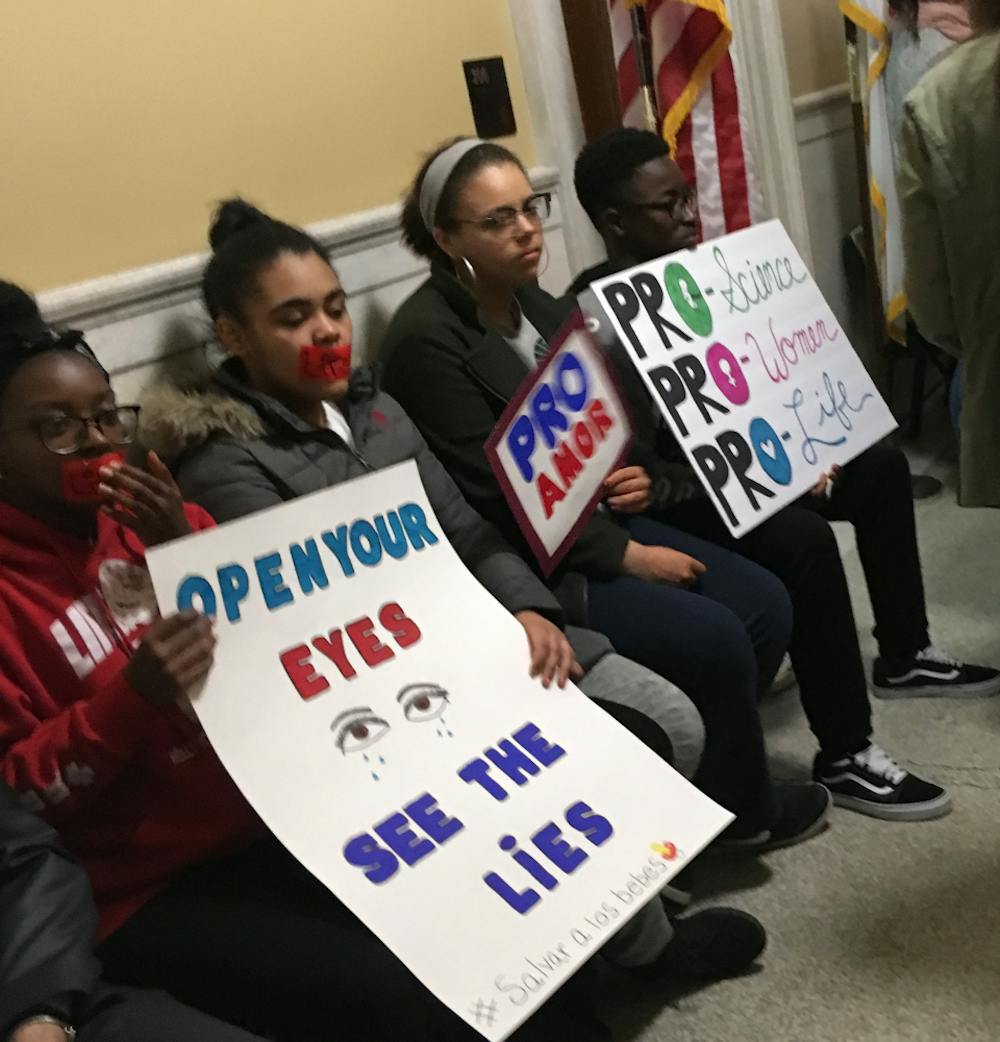The State Judiciary Committee’s hearing on reproductive rights yesterday covered legislation that drew hundreds of community members to the State House, from high school students to baby boomers.
After beginning over an hour late, six bills related to reproductive rights were introduced for simultaneous consideration and commentary. The first five measures proposed limitations on women’s rights — “Recognizing the fetus as a human life upon the existence of a heartbeat,” “The Rhode Island unborn child protection from dismemberment abortion act,” two “Acts relating to criminal offenses - children” and “An act relating to health and safety - Born-alive infant protection act.” The sixth bill, the Reproductive Health Care Act, would replace outdated existing laws and safeguard the right to abortion at the state level.
Advocates demonstrating about reproductive rights represented diametrically opposed perspectives, which they defended with respectful conviction.
“I’m here to support the bill for reproductive rights, and I’m here because I believe the right to abortion is a fundamental part of women’s health care, a basic right that women all over America need to have, and all over the world need to have,” said Rebecca Atwood of Providence. “I want Rhode Island state law to reflect what the federal law is,” she added.
Joshua Santos, a sophomore at Providence College from Pawtucket, came to support his “pro-life” stance. He described his position as a matter of “human dignity,” explaining that “everyone should have the right to life.” He was also “hoping” to have some conversations with people from across the political aisle.
“Women’s health care is about having women decide for themselves, not someone else decide for them, because it’s been too long (that) people keep telling us what to do. And our body is our body,” said Aneice Germain of Cranston. She described threats to reproductive rights as hitting “minorities” especially hard.
Jocelyn Foye, co-creator of The Woman Project, a nonprofit that supports feminist art activism, said socioeconomic considerations factor into the abortion debate. When abortion is not allowed, women can be locked into a state of “extreme poverty,” she added. “We’re not looking to change people’s opinions of what is right; we’re not doing anything like that,” she said. Rather than thinking of abortion as the termination of a human life, “we’re actually very interested in making sure that women have bodily freedom,” she added.
On the other hand, Loren Duhamel attended the rally because she “believe(s) in life; God created each one of us, and he’s the only one who has the right to take it, not each one of us, she said.”
After the bills were introduced, the Committee opened the floor to community members who were for or against the bill. These community members debated whether the Reproductive Health Care Act was redundant in the context of Roe v. Wade, and the likelihood of the federal decision’s appeal.
“The proposed bill shares the ‘fetus-counts-for-nothing’ view of the abortion industry. It institutes a laissez-faire policy with respect to the termination of human life,” said Dwight Duncan, professor at University of Massachusetts Dartmouth.
“Access to reproductive health care is under attack in this country like never before,” said Sulina Mohanty of the North Kingstown Democrats. “There are laws on the books right now that don’t respect women’s essential rights, and that don’t respect the values that the vast majority of Rhode Islanders want to be protected,” she added.
After several hours of continued testaments in favor and against the legislation in question, the bills were not held to a vote and are instead being “held for further study,” according to WPRI.





